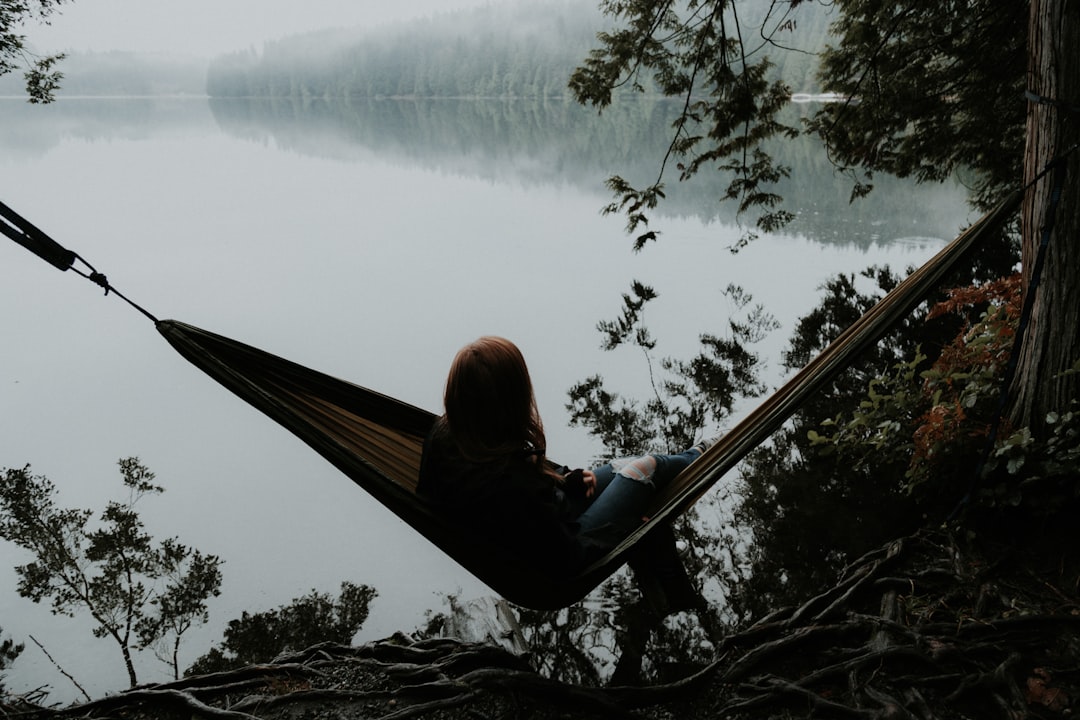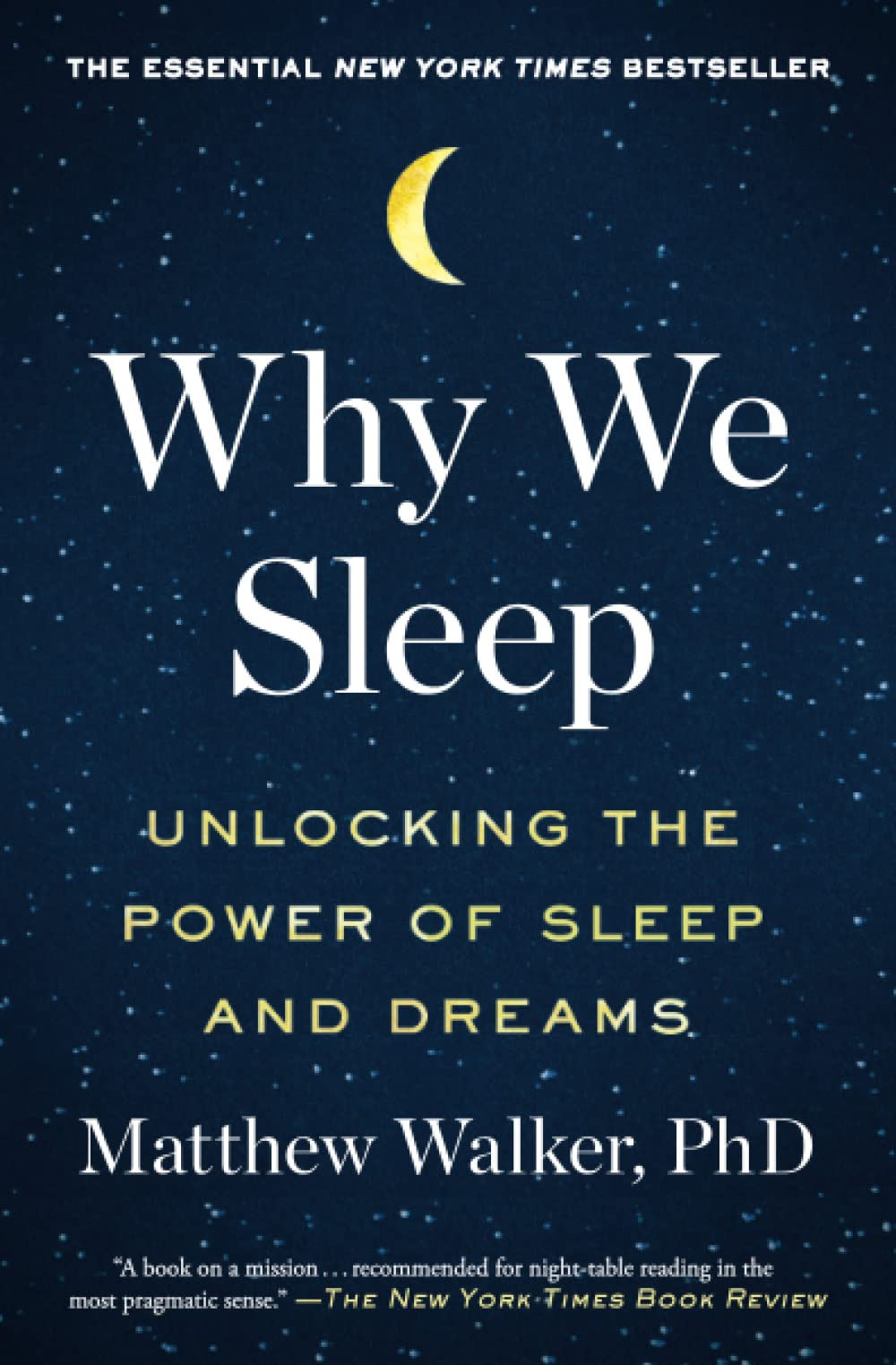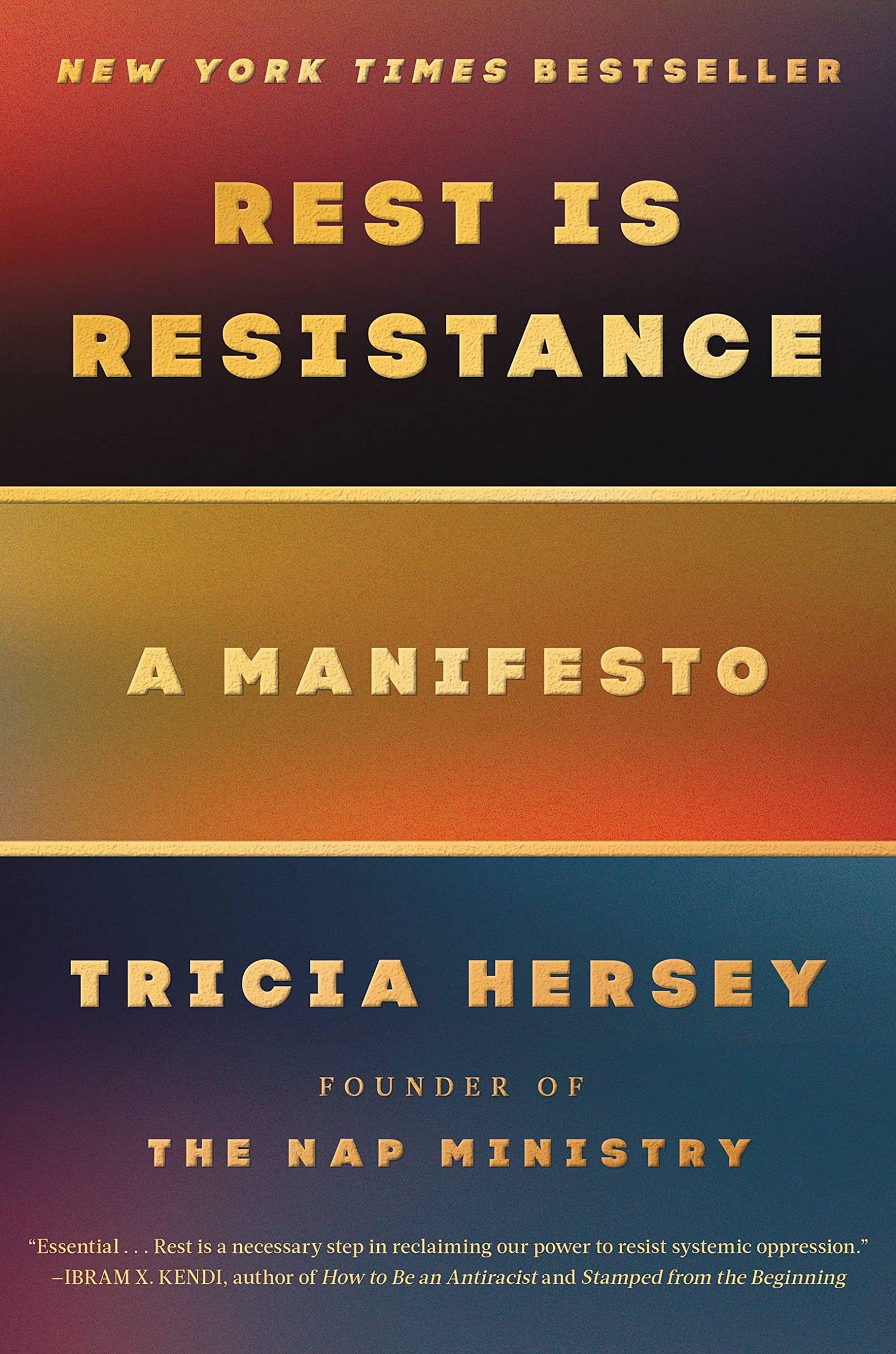I Hope You Get Some Rest
Two books on sleep and rest.
If you’re new to Every Tiny Thought, Welcome!
I write about growing up in China and finding home in the U.S., stories that bring me joy, make me think, move me to tears, and the tiny thoughts I have to share with the world. Everything is free for now, and you can sign up here:
If you’ve been here before, I appreciate you for sticking around!
I used to be a “morning person wannabe.” I'd often seek out productivity blog posts talking about how we can “seize the day” before the world starts by getting up at 5:00 am to make coffee, meditate, read, exercise, and eat a healthy breakfast when most people are just waking up. These articles painted me a picture of success and self-control. I was determined to become a morning person.

At the time, I considered being a morning person meant having self-control and being strong-willed. And the opposite of that would be laziness and the inability to have my life under control. I tried going to bed earlier than my normal bedtime, getting up before 6:00 am (early for me), and squeezing in a 30-minute workout before making myself breakfast. On those days, I felt proud for having done that, but the effort would usually last for only two weeks before I relaxed back to my usual sleep routine of 11 pm to 7 am on weekdays. This schedule still gives me about 8 hours of sleep, but just not as optimal as I aspired to be.
Why We Sleep: Unlocking the Power of Sleep and Dreams (2017) by Matthew Walker
My failed attempt to become an early riser disappointed me until I learned in Why We Sleep that everyone has their unique circadian rhythms. A sleep expert and a neuroscientist who also runs the Center for Human Sleep Science at UC Berkeley, Matthew Walker shares that some people are natural morning risers while some people are inherent night owls and most people are just everything in between.
I feel even more validated when my 23andMe DNA test later confirmed that I am more likely to be a night person and my predicted wake-up time is 9:04 am on my days off, which is pretty accurate considering I usually sleep in until 8 or 9 am on weekends. I then accepted my natural sleep schedule and stopped trying so hard to get up early when I don't have to. After all, it’s in my DNA and I should just let my body be.
In this fascinating and important book, Walker not only tells us all the wonderful things that happen when we get enough sleep, such as longevity, better memory, and improved learning but also all the bad things that happen when we aren’t getting enough sleep, including the increased risk of Alzheimer’s, diabetes, heart disease, decreased memory, and sudden death. Sleep makes up the very fabric of our biological support system and is not optional and not negotiable. To put it simply, Walker states that, “the shorter your sleep, the shorter your life.“
Rest Is Resistance: A Manifesto (2022) by Tricia Hersey
If Why We Sleep offers us scientific evidence on why sleep is important, Tricia Hersey’s 2022 book Rest is Resistance provides us with the spiritual guide and the social justice framework to use rest and sleep to push back against the toxic grind culture that is ingrained in our society. It sends a radical and powerful message: Rest is a form of resistance because it disrupts and pushes back against capitalism and white supremacy.
Productivity should not look like exhaustion. The concept of laziness is a tool of the oppressor. A large part of your unraveling from capitalism will include becoming less attached to the idea of productivity and more committed to the idea of rest as a portal to just be.
― Tricia Hersey, Rest Is Resistance: A Manifesto
The grind culture has socialized us into thinking that we must work and produce to prove our worth, that there’s always more we can do, and that we’re never enough. As an international student, I learned early on that I needed to work twice as hard and be twice as good as my American peers so that I can prove my worthiness to get hired and stay. In my last year of graduate school, I was constantly exhausted and stressed, having to balance full-time study, part-time work, and a job search that feels like a full-time job in itself. Even then, I didn’t feel like I was doing enough. I felt guilty about sleeping in and doing things just for fun.
Hersey had a much more exhausting experience during her time at the divinity school when she was so overwhelmed by her long commutes, endless readings, raising a child, and having to deal with family deaths all at once. When she couldn’t take it anymore, she decided to just sleep and nap whenever she can, even at the expense of skipping classes or not finishing homework. And magic happened: her grades improved, she got healthier, and she became happier. She felt transformed. She then founded the Nap Ministry and later on wrote this best-selling book to share this experience with others.
Yet Rest is Resistance is so much more than just taking naps. It calls for a collective paradigm shift to deprogram ourselves from the toxic and oppressive grind culture, so that we can rest, heal and be human. Hersey sees all forms of activities that connect our mind and the body as a form of rest, such as taking hot showers, daydreaming, napping, getting lost in thoughts, being in nature, disconnecting from social media, etc. Hersey urges us to rest, nap, and sleep whenever our body needs because “we're not machines,” she says, “exhaustion will not save us. Rest will.”
If you are someone who feels exhausted often and find it hard to rest and relax, I hope the messages of these two books help take away some of the guilt you feel when sleeping in and relaxing, because rest is a human necessity (Tricia Hersey) and getting enough sleep is not negotiable (Matthew Walker).
Tell me in the comments, how do you rest, rejuvenate, and recharge when life inevitably gets busy and stressful?
Thank you for being here as always, and I hope you get some rest today.
Every Tiny Thought is a reader-supported publication. To receive new posts and support my work, I hope you consider upgrading your subscription.
If you cannot commit to becoming a paid subscriber, you can buy me a coffee to fuel my writing sessions. It helps me more than you realize.





Thank you for sharing these! I may give them a go.
I am a morning person - and even if I was not, I would have to learn to be for I have dogs...- but recently I have been getting up at 430am to write before work. I sustained the schedule of 5am to 7am (something to do with writing) 7am to 530pm / 6pm (work), a bit of a break and then do some learning or reading from 6pm to 8pm / 9pm for a couple of months. But I am now starting to feel exhausted...I do not think it is the 430am start, I think it's work 😁 But needs must. I will try to figure out a more realistic schedule in the next couple of weeks (especially as I have about five courses for work I am doing...).
P.S. It is a different beast altogether, but 'My Year of Rest and Restoration' by Ottessa Moshfegh might be of interest. It is fiction and it is not necessarily about sleep even if the protagonist's aim is to sleep for a year. Throwing it out there ☺️
I started listening to the Why We Sleep audiobook because of your Goodreads post! I am definitely a night owl and trying to learn how I can embrace that by developing a healthy and realistic relationship with sleep. I’ll have to add Rest is Resistance to my list!